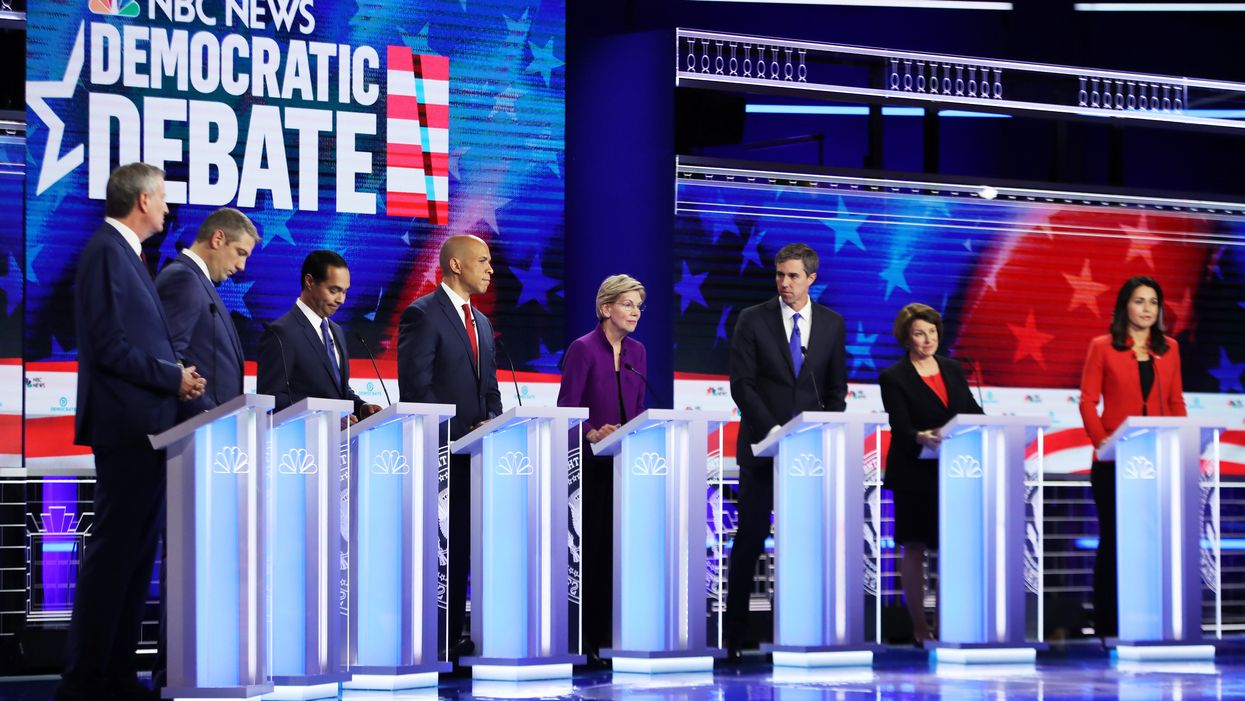Eighteen groups promoting democracy reform sent a letter Tuesday to Tom Perez, chairman of the Democratic National Committee, asking for a presidential debate focused on the candidates' democracy reform plans.
"Whether it comes to addressing our climate crisis, lowering the cost of prescription drugs, ending gun violence, or any other issue Democratic candidates have been talking about on the campaign trail, the role of a healthy democracy in achieving those ends is undeniable," the letter states.
The groups who signed the letter are: Brennan Center for Justice, The Center for Popular Democracy, Common Cause, Communications Workers of America, Democracy 21, The Democratic Coalition, End Citizens United, Equal Citizens, Indivisible, New American Leaders, New American Leaders Action Fund, New Mexicans for Money Out of Politics, People for the American Way, Progressive Turnout Project, Protect Democracy, Public Citizen, Voices for Progress and Wolf-PAC.
Democracy reform issues have played only a small role in the two sets of debates by the Democratic candidates for president.
So far, 10 candidates have qualified for the Sept. 12 debate in Houston. If more than 10 candidates qualify — based on fundraising and polling — a second night will be added on Sept. 13.




















Trump & Hegseth gave Mark Kelly a huge 2028 gift